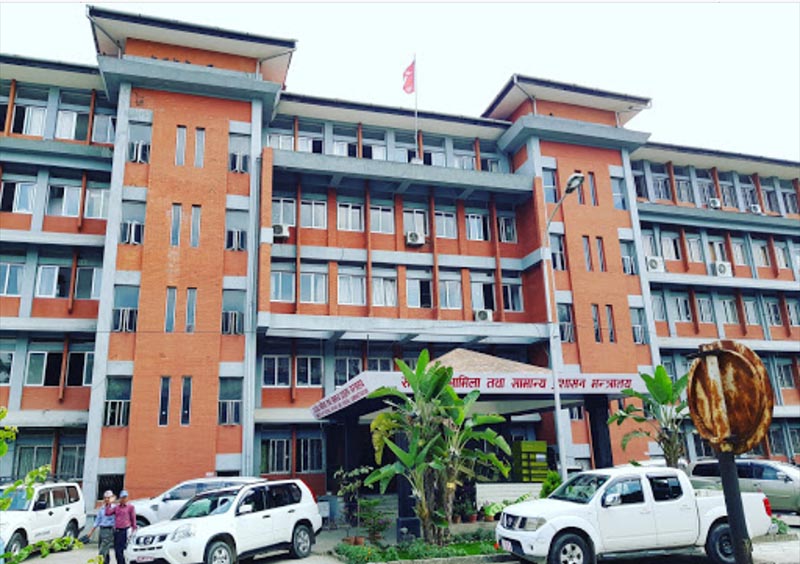MoFAGA formulates procedure to enhance public accountability
KATHMANDU, NOVEMBER 28
The Ministry of Federal Affairs and General Administration has formulated procedure related to public accountability promotion for its implementation at the local levels.
The procedure aims to enhance the public accountability of local governments by making elected representatives and employees through optimum utilisation of public fund in a transparent way. The procedure will come into force after it is passed by the executive of the concerned municipality or rural municipality.
As per the procedure, each local unit shall maintain the records of grievances received through any means. Service-seekers may register their grievances verbally or in writing via telephone, fax, email, SMS, complaint box, post office, public audit and public hearing, among others.
The grievance hearing officer of the local level has to classify the grievances into various categories based on their nature. The grievances may be related to information seeking, public procurement, substandard construction work, financial discipline, addition charges in service delivery, selection of projects and programmes, user groups, prevailing laws and conduct of elected representatives and employees.
“The grievance hearing officer shall, in coordination with the chief administrative officer, settle the grievance within seven days of its receipt.
It requires the grievance hearing officer to inform the concerned complainants about the settlement of the grievance through SMS or any other appropriate means,” the procedure says. Any grievance that could not be settled by the grievance hearing officer or CAO due to various reasons shall be forwarded to a five-member grievance redressal coordination committee headed by chief or deputy chief of the local level.
A senior employee is designated as the grievance hearing officer by the CAO of the local government.
Similarly, the procedure has stipulated a provision for receiving and settling the grievances by the ward office.
The ward chair concerned shall act as the grievance hearing officer at the ward level. The ward chair has to forward the grievances that could not be settled by him/her to the committee through CAO.
According to the procedure, the local government shall conspicuously place a complaint box near the main entrance of its office. “The local authorities shall maintain the confidentiality of grievances related to graft and financial indiscipline, which are required to be forwarded to the Commission for the Investigation of Abuse of Authority. The local levels have to attach priority to the implementation of grievances and suggestions received through the CIAA, Office of the Auditor General, Parliamentary panels, agencies of the government and provincial government, and Distinct Coordination Committee,” it reads.
The procedure also made it mandatory for the local levels to conduct a social audit of the activities carried out by them in each fiscal year for the evaluation of annual performance and their social outcomes. Such social audit has to be conducted through a third party by hiring it and submitted its report to the assembly.
“Within seven days of obtaining approval for the implementation of any programme or project, the local levels shall have to provide information thereof to the concerned users and stakeholders,” it says.
There is also a provision of spokesperson and information officer at each local level.






